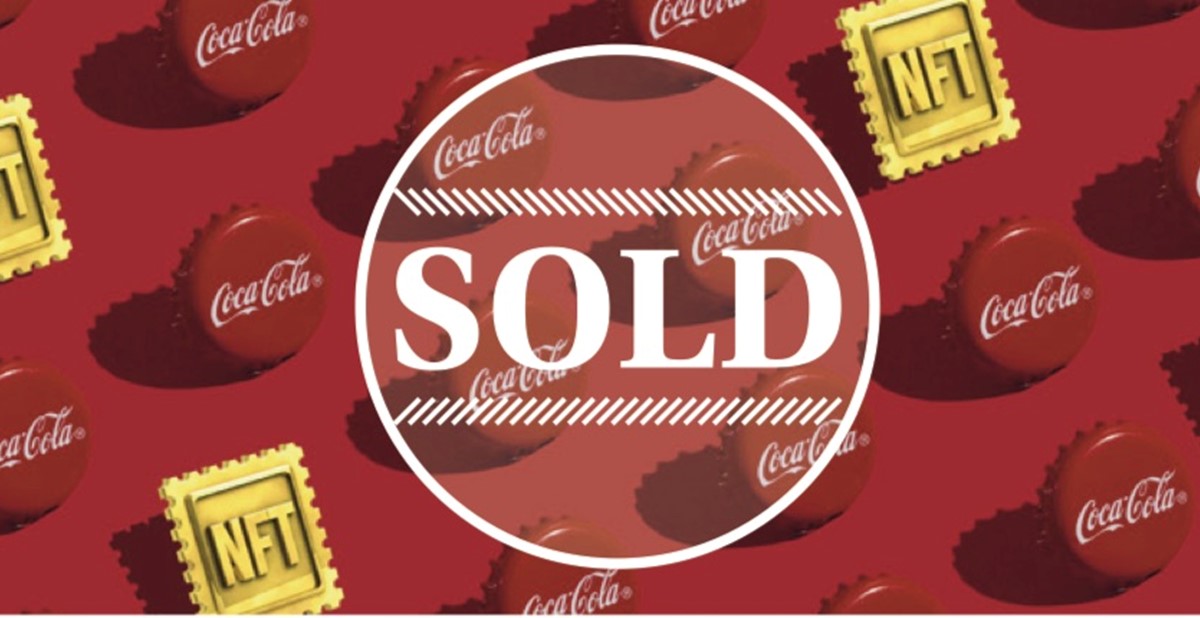Brandable: The Coca-Cola Company Auctions First NFT Collection

Lucas Agr / Pavlovska Yevheniia / Shutterstock.com
Coca-Cola has long been satisfying soda drinkers’ palettes across the globe with its sweet, refreshing family of carbonated beverages. Now, the Atlanta, Georgia, beverage giant has entered into the space of non-fungible tokens (NFTs) with its Friendship Box, which houses a collection of three multi-sensory NFTs that are packaged inside of a fourth NFT. The Friendship Box was released in recognition of International Friendship Day on July 30 and was auctioned over a 72-hour period on OpenSea, an online marketplace for NFTs and other cryptocurrency trading. Proceeds from the collection, which sold for $575,883.61, went to benefit Special Olympics International.
The Friendship Box is presented similarly to a “loot box,” which, in video games, are virtual grab-bags or mystery boxes that players can purchase in exchange for real or in-game currency. However, in gaming, there’s a catch: players aren’t aware of what’s inside the loot box until after they’ve purchased it. Luckily, that wasn’t the case with this collection.
When viewing the Friendship Box, the NFT first shows as symbols of friendship and sharing, which fade to reveal a vintage, 1956-style Coca-Cola vending machine complete with light and motion. “Inside” the vending machine are three additional NFTs, the first being a vintage, branded Coca-Cola Bubble Jacket with a metallic red design inspired by the jackets Coca-Cola delivery drivers wore in the ’50s. The jacket has light and motion features, and also includes a version that can be unlocked and “worn” in Decentraland, a three-dimensional virtual reality platform powered by the Ethereum blockchain. Next is a Sound Visualizer, which presents as a red CD and plays sounds associated with enjoying a cold bottle of Coca-Cola, from opening a bottle cap and pouring the soda over ice, to the fizzing that follows and the “ahh” of delicious satisfaction. The third NFT is an updated, digital rendition of Coca-Cola’s trading cards that were sold in the ’90s, which were designed using artwork created in the late ’40s. The cards present the Coca-Cola beverage as a symbol of friendship, as is written on one of the cards, and also feature light, motion and 3D elements. Also included in the NFT collection were unannounced, surprise elements to be discovered only after it was sold at auction, and in the real world, the buyer also received a ’56 retro-style Coca-Cola refrigerator fully stocked with Coca-Cola, of course.
The NFT collection was created in partnership between Coca-Cola and Tafi—a Salt Lake City, Utah-based company that designs custom 3D content for avatar and emoji systems—and Virtue, the creative agency of Brooklyn-based VICE Media Group LLC, which brought the concept to fruition in under two months’ time. The breakthrough into NFTs, which tapped the creativity of 10 digital artists, was described on Coca-Cola’s website as representing the company’s entrance into the “metaverse,” or the collective, shared virtual space. Prior to the auction, Coca-Cola hosted a virtual “can-top” party in Decentraland on International Friendship Day, which featured surprise guests, music and giveaways, along with a first look at the Friendship Box. During the event, representatives from Coca-Cola, Tafi, OpenSea and Decentraland Foundation were plugged in for a live ask-me-anything chat session on Decentraland’s Discord channel to discuss the NFTs.
––––––––––––––––––––––––––––––––––––––––––––––––––––––––––––––––––––––––––
Danielle Renda is associate editor of PPB.

